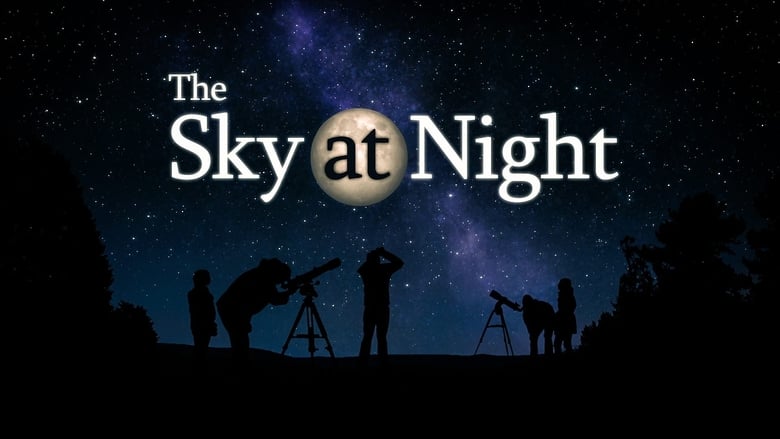
First Aired: April 24th, 1957
Status: Continuing
Genre: News, Documentary
Network: BBC Four
Summary: Your monthly journey through the fascinating world of space and astronomy with the latest thinking on what's out there in space and what you can see in the night sky.
Next Episode:
New episode date is not available for now
Episode Statistics:
# of Episodes: 679
# of Episodes I watched: 0
# of Episodes I haven't watched: 679
Last Episode I watched: -
Episode Summaries
Select Season:
My Season Progress:
0 %
Season 2014
Episode 2: Sounds of the Universe
Air Date: March 9th, 2014
Summary: The Sky at Night team listens to the sounds of the cosmos. Maggie Aderin-Pocock and Chris Lintott explore how sound can reveal extraordinary secrets about the universe - from orchestral tunes rippling on the surface of the sun and the crackle of Jupiter's atmosphere to the sound waves that reveal how the universe was formed. This is astronomy as you've never heard it before.
Episode 3: Mysterious Mars
Air Date: April 13rd, 2014
Summary: Mars captures the imagination like no other planet and currently our nearest neighbour is at its brightest for several years, so it's a perfect opportunity to explore a planet that is tantalisingly similar to our own. And in the past it may have been even more like Earth, an inviting and habitable place, a perfect environment for life to flourish. Geologist Iain Stewart investigates how we can read the story of Mars's extraordinary past from its rocks, Maggie Aderin-Pocock comes face to face with the latest Mars rover and Chris Lintott meets the man behind the discovery which the whole history of the universe now rests upon.
Episode 4: How Gravity Shapes the Universe
Air Date: May 11st, 2014
Summary: The universe is filled with spectacular objects, from gloriously-coloured nebulae to the swirling motion of a billion stars formed into a single galaxy. One force has created it all - gravity. The Sky at Night team steps away from the bright lights and travels to the Brecon Beacons AstroCamp to see how gravity shapes the universe, in all its spectacular glory. Maggie Aderin-Pocock asks why so much of the night sky is filled with spheres and why not all these spheres are what they seem. Chris Lintott finds out about the newest moon in the solar system that has just formed in Saturn's rings, and how it could shed light on how the planets formed billions of years ago. Plus, how to get great images of the night sky without using a telescope and what the shape of a galaxy tells you about its past.
Episode 7: How to Catch a Comet
Air Date: August 10th, 2014
Summary: The team goes behind the scenes at mission control for the critical point of the most ambitious space project of the decade. The European Space Agency's Rosetta probe finally catches up with the comet it has been chasing across the solar system for ten years and prepares to send out a lander armed with drills and harpoons for a daredevil attempt to hitch a ride. With the latest images revealing that it may even be two comets stuck together, Dr Chris Lintott is on hand in Germany with updates from the mission team on this unparalleled challenge, whilst Dr Maggie Aderin- Pocock reveals the instruments that the lander is carrying.
Episode 9: Ice Giants
Air Date: October 12nd, 2014
Summary: The vast frozen worlds of Uranus and Neptune are the most enigmatic and mysterious planets in the solar system. From the most powerful winds ever recorded to their exotic atmospheres, what makes these planets so unique? Chris Lintott and Maggie Aderin-Pocock reveal the latest images of the ice giants, while award-winning astro-photographer Damian Peach shares his tips for capturing these jewels of the night sky.
Episode 10: Rosetta: A Sky at Night Special
Air Date: November 16th, 2014
Summary: It is one of the most extraordinary space adventures in a generation - to land a spacecraft on a comet.
The European Space Agency's (ESA) Rosetta spacecraft has been hurtling through space for over 10 years, tracking down a comet called 67P/Churyumov-Gerasimenko. Now it is about to do something that has never been attempted before and land a spacecraft on the comet's surface.
This special episode of The Sky at Night puts the viewer right at the heart of the action, witnessing events as they happened from inside mission control. It reveals the latest images, explores the first groundbreaking science coming back from the comet and asks the astonishing questions that make this mission so captivating. Could Earth's water have come from comets? How do comets survive for so long? Could they have triggered the start of life on Earth?
The journey has been fraught with risk and at every stage the comet seems to surprise, but if the mission succeeds it will be a momentous day in the history of space exploration.
Episode 11: The Pillars of Creation
Air Date: December 14th, 2014
Summary: Perhaps no object in the night sky conjures up a greater sense of awe and wonder than a nebula. These vast clouds of dust and gases are stupendously beautiful, but they aren't just pretty objects. Nebulae play a key role in the birth and death of stars, and therefore in our own origins. And driving their creation is a kind of chemistry that the textbooks say shouldn't be happening.
Information about series and episodes are provided by TMDB API. If you think that episode information is wrong or missing, please click here to request an update. After your request, update process can take up to 30 minutes.


